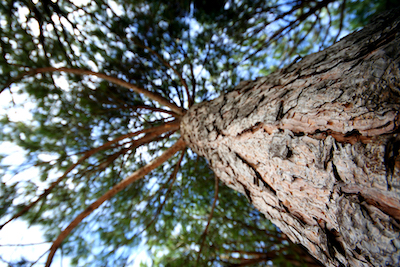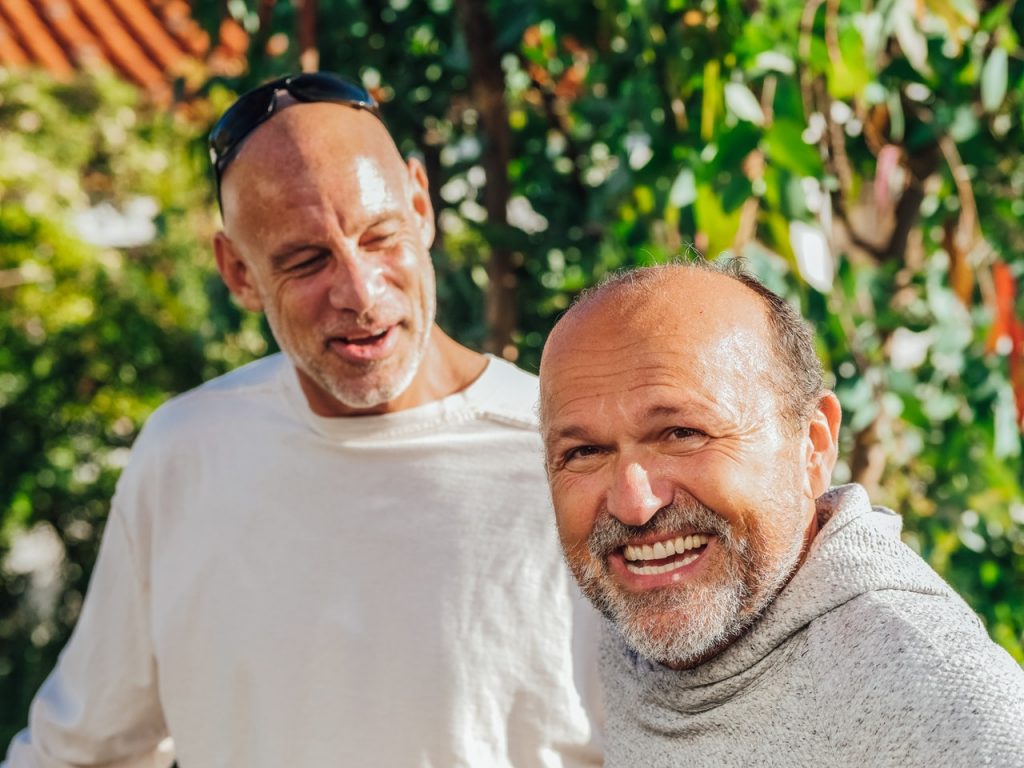A Botanical for All Things Circulatory, Pine Bark Extract Has Numerous Studies Showing It Enhances Erectile Function

French maritime pine bark (Pinus pinaster) is a botanical with substantial clinical evidence that it helps improve blood vessel function, in part by enhancing nitric oxide (NO) production [1],[2]Standardized pine bark extract (SPBE) is a source of numerous polyphenol antioxidants, including procyanidins, bioflavonoids, and organic acids, and has been shown in multiple clinicals to improve blood flow both centrally and peripherally.[3],[4],[5],[6]
Significant improvements in both systolic and diastolic blood pressure have been seen with regular use of SPBE,[7],[8] while studies suggest it also may be efficacious in troubling conditions like tinnitus and Raynaud’s syndrome.[9],[10],[11] With positive outcomes being shown in humans studies of chronic venous insufficiency,[12],[13] hemorrhoids,[14],[15] retinopathy,[16] and diabetic ulcers[17]—SPBE really seems to cover all things with a circulatory etiology.

Given its demonstrated affinity for circulatory health, it is not a surprise that SPBE has been studied to investigate its impact on erectile dysfunction (ED). In a population of men ranging in age from 22 to 69, supplementation of SPBE at 120 mg/day improved International Index of Erectile Function (IIEF-5) scores significantly by three months, improving the average score from 12.6 (moderate ED) to 16.8 (mild ED).[18] Progressive improvements were seen in those taking SPBE at the monthly evaluation timepoints. Those taking placebo experienced a decline in function from a baseline of 11.3 (moderate ED) to 8.9 (severe ED). Although a decline in performance such as this would undoubtedly be personally significant, it was not statistically significant. During the study period, plasma antioxidant activity also significantly increased in those taking SPBE.
SPBE has also been studied as an agent for addressing ED in combination with L-arginine, a nutrient directly involved in NO production. In a population of 40 young men (ages 25 to 45) who had a complaint of ED for at least three months, supplementation of 1.7 g of L-arginine (as a drinkable solution of dipeptide arginyl aspartate) and 120 mg of SPBE a day was found to restore normal erectile function in 92.5% of subjects.[19] The intervention used in this study progressively increased each month: in the first month, only arginine was given, after which 5% reported a normal erection, and in the second month, after treatment with arginine and 80 mg of SPBE daily, 80% reported a normal erection. The improvements seen after the introduction of SPBE suggest that it enhances the impact arginine has on NO production; however, a treatment arm of the study in which subjects only received SPBE would have offered an interesting comparison.
An additional study investigated the impact of SPBE in combination with L-arginine in an aging population of Japanese men (average age 51.4) having mild to moderate ED.[20] Daily supplementation of the combination of 60 mg of SPBE and 690 mg of L-arginine (as L-arginine aspartate) or placebo was assigned to participants, who were blinded to their treatment. Evaluation of erectile function, salivary testosterone levels, and other basic blood chemistry metrics occurred at four and eight weeks. By the end of the study, improvements in IIEF-5 scores were seen in 66.7% of the treatment group, while improvements were only seen in 36.4% of the placebo group.
A more interesting finding in the Japanese men (and perhaps more biologically significant overall), was that salivary testosterone levels progressively and significantly increased at weeks four and eight in the treatment group, while there was no change in the placebo group. A previous study with this intervention also reported a finding of increased salivary testosterone,[21] which has been proposed to be due to enhanced blood flow to the gonads or a secondary effect of increased intercourse.
Botanical such as the French Maritime pine bark, which have substantial clinical backing, are of great interest to the integrative physician, particularly those who are new to using botanical medicine. A preponderance of evidence and the demonstrated high level of safety of SPBE make it a botanical that even the novice herbalist can feel comfortable using in clinical practice.[22]
Carrie Decker, ND, graduated with honors from the National University of Natural Medicine in Portland, OR. Prior to becoming a naturopathic physician, Dr. Decker was an engineer and obtained graduate degrees in biomedical and mechanical engineering from the University of Wisconsin-Madison and University of Illinois at Urbana-Champaign, respectively. She continues to enjoy academic research and writing and uses these skills to support integrative medicine education as a writer and contributor to various resources.
[1] Rohdewald P. A review of the French maritime pine bark extract (Pycnogenol), a herbal medication with a diverse clinical pharmacology. Int J Clin Pharmacol Ther. 2002 Apr;40(4):158-68.
[2] Nishioka K, et al. Pycnogenol, French maritime pine bark extract, augments endothelium-dependent vasodilation in humans. Hypertens Res. 2007 Sep;30(9):775-80.
[3] Belcaro G, et al. Postpartum varicose veins: supplementation with pycnogenol or elastic compression – a 12-month follow-up. Int J Angiol. 2017 Mar;26(1):12-9.
[4] Zibadi S, et al. Reduction of cardiovascular risk factors in subjects with type 2 diabetes by Pycnogenol supplementation. Nutr Res. 2008 May;28(5):315-20.
[5] Cesarone MR, et al. Improvement of signs and symptoms of chronic venous insufficiency and microangiopathy with Pycnogenol®: a prospective, controlled study. Phytomedicine. 2010 Sep;17(11):835-9.
[6] Liu X, et al. Pycnogenol, French maritime pine bark extract, improves endothelial function of hypertensive patients. Life Sci. 2004 Jan 2;74(7):855-62.
[7] Hosseini S, et al. A randomized, double-blind, placebo-controlled, prospective, 16 week crossover study to determine the role of Pycnogenol in modifying blood pressure in mildly hypertensive patients. Nutr Res. 2001 Sep 1;21(9):1251-60.
[8] Cesarone MR, et al. Kidney flow and function in hypertension: protective effects of pycnogenol in hypertensive participants–a controlled study. J Cardiovasc Pharmacol Ther. 2010 Mar;15(1):41-6.
[9] Luzzi R, et al. Improvement in symptoms and cochlear flow with pycnogenol in patients with Meniere’s disease and tinnitus. Minerva Med. 2014 Jun;105(3):245-54.
[10] Grossi MG, et al. Improvement in cochlear flow with Pycnogenol® in patients with tinnitus: a pilot evaluation. Panminerva Med. 2010 Jun;52(2 Suppl 1):63-7.
[11] Hu S, et al. Management of mild, primary Raynaud Syndrome: supplementation with Pycnogenol®. Minerva Cardioangiologica. 30 Sep 2019;67(5):392-8.
[12] Belcaro G, et al. Improvements of venous tone with pycnogenol in chronic venous insufficiency: an ex vivo study on venous segments. Int J Angiol. 2014 Mar;23(1):47-52.
[13] Cesarone MR, et al. Comparison of Pycnogenol® and Daflon® in treating chronic venous insufficiency: a prospective, controlled study. Clin Appl Thromb Hemost. 2006 Apr;12(2):205-12.
[14] Belcaro G, et al. Pycnogenol® in postpartum symptomatic hemorrhoids. Minerva Ginecologica, 31 Jan 2014;66(1):77-84.
[15] Belcaro G, et al. Pycnogenol® treatment of acute hemorrhoidal episodes. Phytother Res. 2010 Mar;24(3):438-44.
[16] Steigerwalt R, et al. Pycnogenol® improves microcirculation, retinal edema, and visual acuity in early diabetic retinopathy. J Ocul Pharmacol Ther. 2009 Dec;25(6):537-40.
[17] Belcaro G, et al. Diabetic ulcers: microcirculatory improvement and faster healing with pycnogenol. Clin Appl Thromb Hemost. 2006 Jul;12(3):318-23.
[18] D̆uračková Z, et al. Lipid metabolism and erectile function improvement by Pycnogenol®, extract from the bark of Pinus pinaster in patients suffering from erectile dysfunction-a pilot study. Nutr Res. 2003 Sep 1;23(9):1189-98.
[19] Stanislavov R, Nikolova V. Treatment of erectile dysfunction with pycnogenol and L-arginine. J Sex Marital Ther. 2003 May-Jun;29(3):207-13.
[20] Aoki H, et al. Clinical assessment of a supplement of Pycnogenol® and L-arginine in Japanese patients with mild to moderate erectile dysfunction. Phytother Res. 2012 Feb;26(2):204-7.
[21] Lamm S. Prelox® for improvement of erectile quality. Eur Endocrinol. 2009;5:70-4.
[22] Gulati OP. Pycnogenol® in Metabolic Syndrome and Related Disorders. Phytother Res. 2015 Jul;29(7):949-68.




